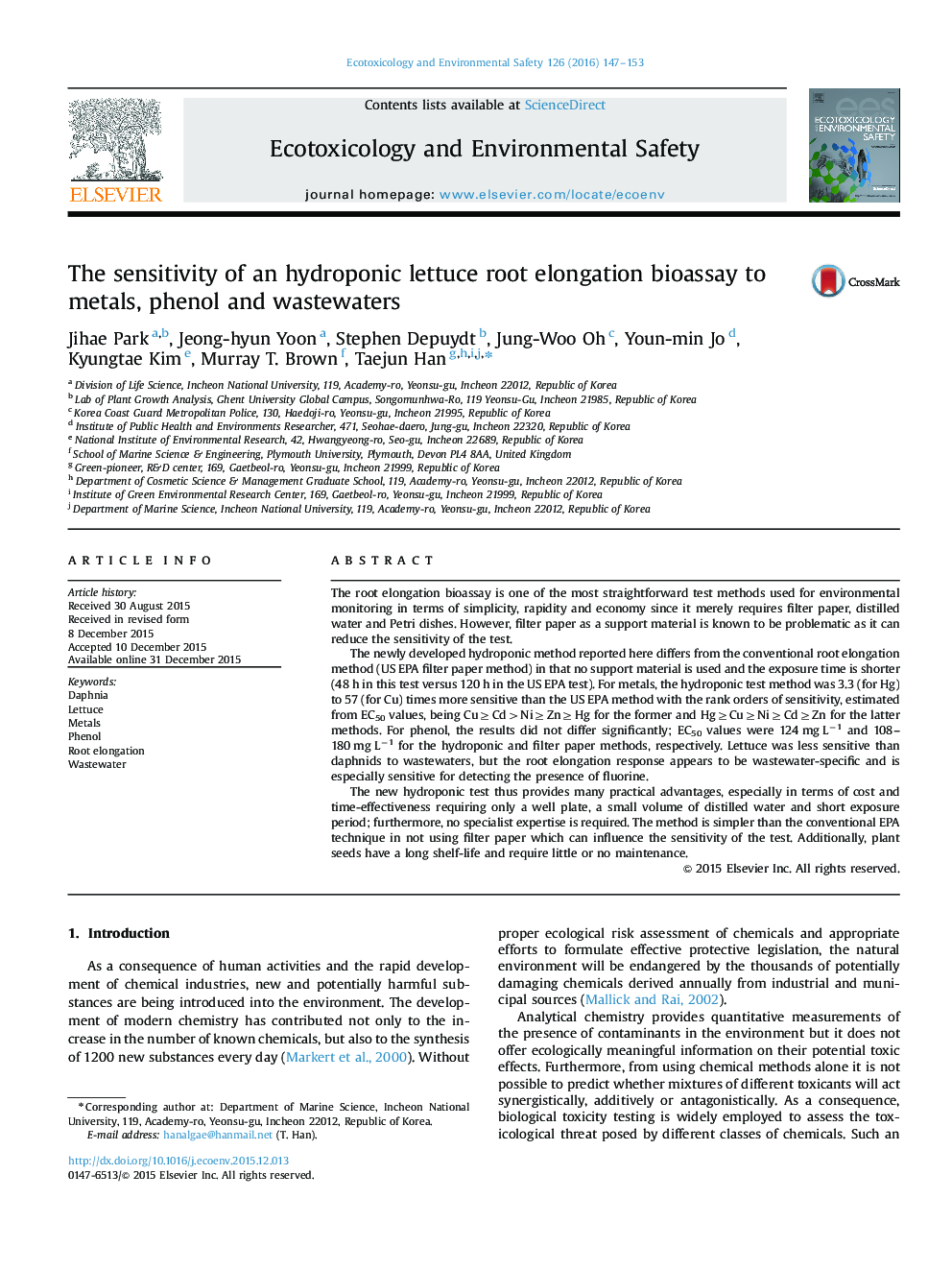| Article ID | Journal | Published Year | Pages | File Type |
|---|---|---|---|---|
| 4419211 | Ecotoxicology and Environmental Safety | 2016 | 7 Pages |
•The new hydroponic root elongation test provides many practical advantages in terms of simplicity, cost- and time-effectiveness as compared with the conventional EPA technique.•Plant seeds have a long shelf-life and require little or no maintenance.•Lettuce was less sensitive than daphnids to wastewaters, but the root elongation response appears to be wastewater-specific, with particular sensitivity to fluorine.
The root elongation bioassay is one of the most straightforward test methods used for environmental monitoring in terms of simplicity, rapidity and economy since it merely requires filter paper, distilled water and Petri dishes. However, filter paper as a support material is known to be problematic as it can reduce the sensitivity of the test.The newly developed hydroponic method reported here differs from the conventional root elongation method (US EPA filter paper method) in that no support material is used and the exposure time is shorter (48 h in this test versus 120 h in the US EPA test). For metals, the hydroponic test method was 3.3 (for Hg) to 57 (for Cu) times more sensitive than the US EPA method with the rank orders of sensitivity, estimated from EC50 values, being Cu≥Cd>Ni≥Zn≥Hg for the former and Hg≥Cu≥Ni≥Cd≥Zn for the latter methods. For phenol, the results did not differ significantly; EC50 values were 124 mg L−1 and 108–180 mg L−1 for the hydroponic and filter paper methods, respectively. Lettuce was less sensitive than daphnids to wastewaters, but the root elongation response appears to be wastewater-specific and is especially sensitive for detecting the presence of fluorine.The new hydroponic test thus provides many practical advantages, especially in terms of cost and time-effectiveness requiring only a well plate, a small volume of distilled water and short exposure period; furthermore, no specialist expertise is required. The method is simpler than the conventional EPA technique in not using filter paper which can influence the sensitivity of the test. Additionally, plant seeds have a long shelf-life and require little or no maintenance.
